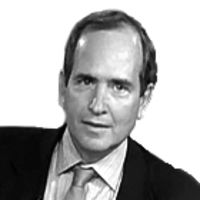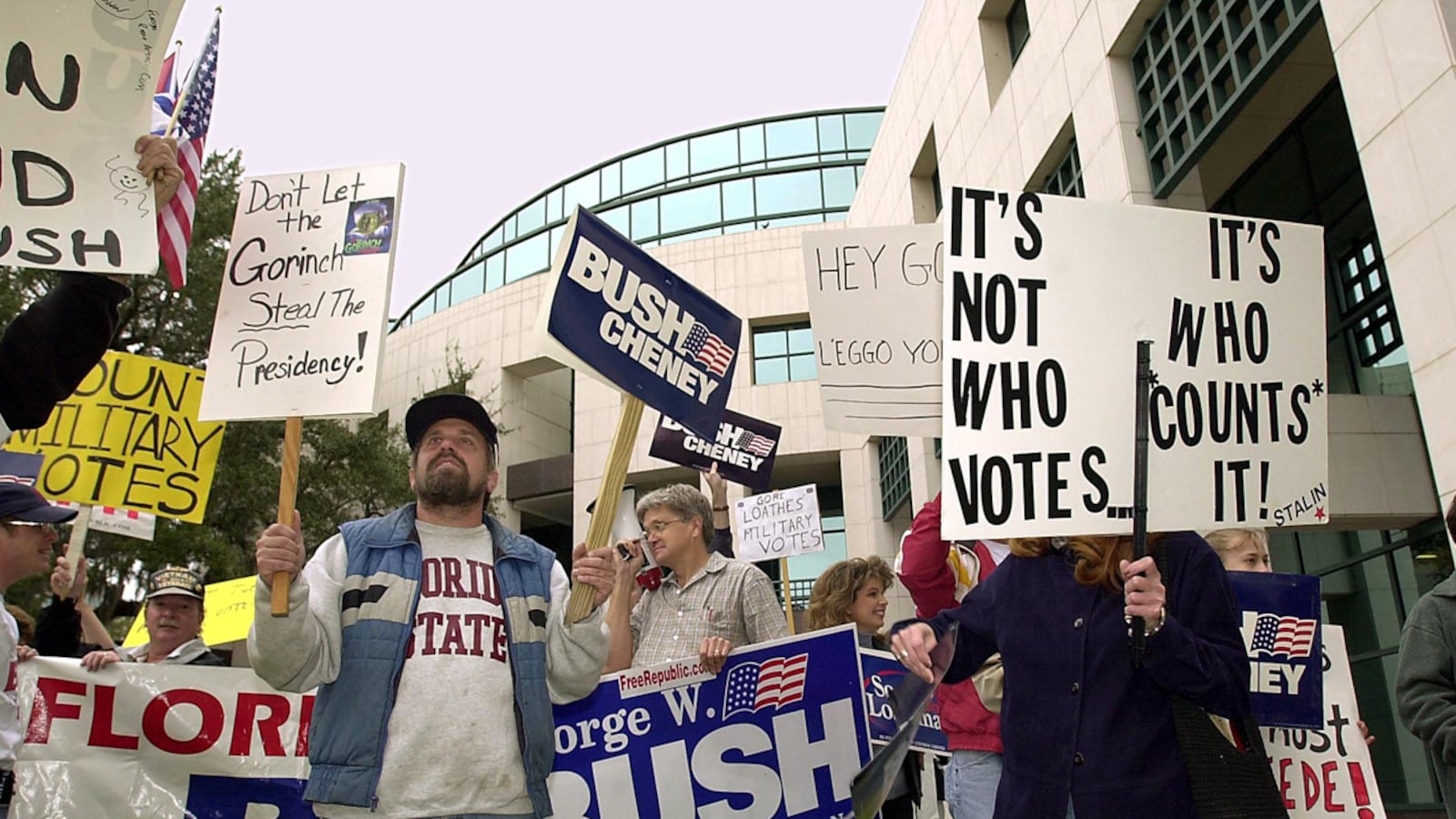A top Democrat who was intimately involved in the rancorous 2000 presidential recount in Florida is raising an almost diabolically complex prospect: what if the Obama-Romney contest inspires recounts in multiple states?

Former presidential chief of staff William Daley disclosed in an interview that he’s broached the subject to the Obama reelection campaign, given the closeness of polling in several key states and his experience as then–vice president Al Gore’s campaign chairman in 2000.
His message is simple: be well prepared for such an eventuality, regardless of its unprecedented nature.
“It’s not the same as preparing, as Democratic lawyers do, for Election Day voter harassment,” said Daley, who served as commerce secretary in the Clinton administration before moving to the Gore campaign in 2000.
David Axelrod, a top adviser to Obama’s reelection campaign, could not be reached for comment. Daley says that Axelrod responded to his advice by pointing out that the campaign has lots of lawyers on hand. But the former White House chief of staff, who has stayed on good terms with Obama’s team, came away with the impression that the possibility of a Florida replay wasn’t on the campaign strategists’ radar screen.
The historic Florida recount and eventual U.S. Supreme Court decision remain obvious sore points for Democratic partisans. And, in looking back, Daley concedes a few organizational missteps by the Gore camp in Florida, most notably not having a legal and media team on board more quickly.
In fact, after the Florida ambiguity arose, the Gore camp reached out to a Florida law firm, only to later learn that its partners had second thoughts and would not help Gore, Daley said. While the Chicagoan has always suspected the hidden hand of then–Florida governor Jeb Bush, Republican candidate George W. Bush’s brother, the bottom line was that not having a firm locked in further in advance delayed by a crucial day or two the needed preparations by Gore during an inherently frenzied period.
“Having multiple states [involved in recounts] is an organizational challenge,” Daley said, outlining the various elements needed involving areas of law, politics, and media.
Daley’s consideration of a far-flung set of post-election disputes is simply a function of current polling in many important states showing the Obama-Romney race too close to call. Those include Florida, Virginia, North Carolina, and Iowa.
In his mind, what one needs to battle a recount is different than traditional campaign and Election Day needs, even when those are already overseen by sophisticated practitioners. That means procuring the very best lawyers with an intricate understanding of state election laws one can find in a state and involving them in the actual campaign organization.
That melding is relevant, he said, since they need to be very familiar with what’s going on overall and to be part of what can be an on-the-fly mobilization, which includes the “political spin operation” targeted at media and, thus, the general public, Daley said.
Legal challenges to individual voters’ ballots will be heavy, which entails an operation in and of itself. Then there’s the reality of the laws impacting recounts, often markedly different state by state. Throw in the possibility of dealing with multiple recounts, and one faces strategic and organization pressures unusual even for an until-then big-time campaign apparatus.
Daley’s take was echoed by Phil Beck, a Chicago trial attorney who gained great attention during the recount as a key player on the Bush team in Florida. Beck headed the Bush litigation group during the so-called contest period that followed the state’s formal certification of the results and involved Gore challenges to the validity of the election.
Beck was having Thanksgiving dinner at his sister’s home in the Chicago suburbs that year when his cellphone rang and Fred Bartlit Jr., a prominent and famously macho litigator who was Beck’s mentor in their Chicago-Denver law firm, told him to head to O’Hare International Airport and catch the next flight to Tallahassee, Fla.
In short order, he was a nationally inspected courtroom star whose cross-examination rhetorically blew to bits two witnesses for Gore and led to what was then a major Gore defeat in state court.
While Daley rues not having a Florida firm in place more quickly, from Beck’s perspective it seemed as if the Democrats were ahead of the Republicans in the early going.
By the time he and Bartlit were enlisted, the Republicans had legal strategists such as former secretary of state James Baker and Washington attorney Ben Ginsberg in tow, but not a litigation team. The Democrats had a courtroom squad in place that included David Boies, a high-profile New York litigator.
Beck revealed that the 2000 experience clearly impacted the 2004 Bush reelection campaign in planning for a recurrence in the race against Democrat John Kerry.
“The Republicans had people in Washington who had put together plans for each battleground state and briefing books on elections laws and recount procedures,” he recalled Friday. “I think they had tentatively lined up office space and had different potential trial teams ready if there was more than one recount state.”
On election night, he said, “I had bags packed and was ready to go, and somebody was calling us every hour about whether we might be needed to go to a particular state, whether it might be Ohio, Arizona, or somewhere else.
“Then, late in the evening, they said they thought Bush would eke it out and that Kerry would do the right thing and concede in the morning. At that point, they didn’t want to be provocative and have lawyers parachuting into places without actual litigation looming.”
The call for Beck’s services did not come until weeks after the election.






